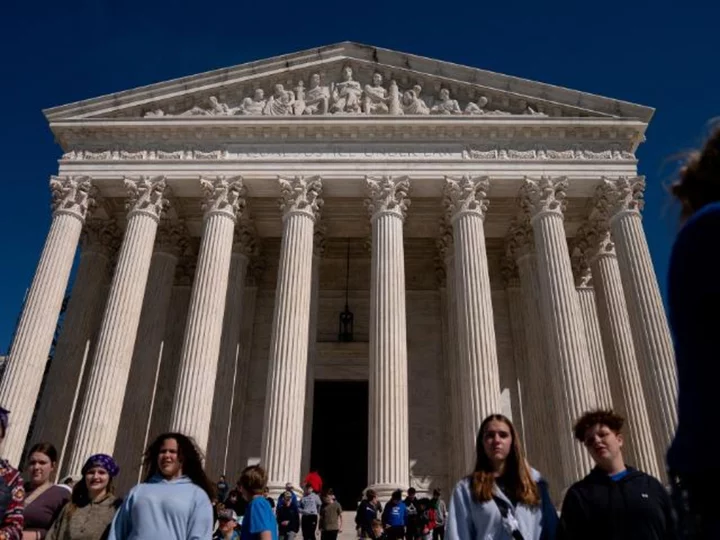OAKLAND, CALIFORNIA: The California Reparations Task Force officially recommended the state offer payments of up to $1.2 million to every qualifying Black resident. The nine-member panel conducted a public meeting in Oakland, California on Saturday, May 6, to vote on the final set of recommendations to be sent to the legislators of the state. The panel urged the state to also offer Black residents a formal apology alongside payments.
“Reparations are not only morally justifiable, but they have the potential to address longstanding racial disparities and inequalities,” Rep Barbara Lee, California, said in a statement after attending the meeting, Fox News reported. The decision came in the wake of California defaulting on an approximately $18.6 billion debt. Experts said that the state’s decision to not pay back some of the amounts it borrowed from the federal government to cover unemployment benefits during Covid-19 will now fall on the shoulders of employers, ZeroHedge noted.
READ MORE
California megadrought leaves state wildlife to perish under the scorching sun
What the California reparations panel recommended
As per the recommendations of the California Reparations Task Force panel, payments provided to Black residents should be broken down by types of historical discrimination. For example, Black residents who have been affected by redlining by banks would receive $3,366 for each year they lived in California between the 1930s and late 1970s, amounting to up to $148,099, as per Fox News. Similarly, Black residents who have faced over-policing and mass incarceration for each year they lived in California between 1970 and 2020 could receive approximately $2,352 in compensation, with payments amounting up to $115,260.
Therefore, from these payments and other payouts recommended in the plan, a 71-year-old African-American Californian who has lived in the state for his entire life could receive up to $1.2 million, an analysis from the New York Times concluded. It is to be noted, that the panel’s vote on Saturday, May 6, only included recommendations for the state legislature and does not have any legal weight so far.
The draft recommendation also noted that California entered the Union as a free state in 1850 but did not pass laws to guarantee freedom at the time. It also pointed out that the state continued to allow the enforcement of the Fugitive Slave Act, which allowed the capture and return of runaway slaves, for nearly a decade after emancipation.
Some residents raise demand for larger payments
On Saturday, May 6, some Black residents also demanded larger payments, Fox News noted. Activist Reverend Tony Pierce referenced the “40 acres and a mule” promise made to former slaves during his speech and said, “You know that the numbers should be equivocal to what an acre was back then.” He added, “We were given 40, okay? We were given 40 acres. You know what that number is. You keep trying to talk about now, yet you research back to slavery and you say nothing about slavery, nothing."
Pierce continued, “So, the equivocal number from the 1860s for 40 acres to today is $200 million for each and every African-American.” The majority of the people who spoke at the meeting reportedly showed their support for reparations. Despite the agreement, arguments broke out during the emotionally charged meeting. Task force chair, Kamilah Moore, was compelled to call for security to remove people from the venue multiple times as attendees spoke out of turn and interrupted each other, the publication noted.
‘Not really an employer-friendly state’
Amid the latest payment made recommendations made by the California reparations panel, experts said employers would be burdened by the state’s decision to refrain from paying back its nearly pay $20 billion loan borrowed from the federal government to cover unemployment benefits during the pandemic.
As per California’s proposed 2023-2024 budget, $750 million was allocated to clearing the loans. However, Governor Gavin Newsom canceled the provision in January and left businesses in the state responsible for the loans as federal regulations mandate. Therefore, the federal unemployment tax rate of 0.6 percent will increase by 0.3 percent per year, starting in 2023 until the loan is extinguished.
“The state should have taken care of the loans with the COVID money it received from the government in 2021,” Marc Joffe, a policy analyst at the public policy think tank Cato Institute, told the Epoch Times. “California is just not really an employer-friendly state,” he added. “This one thing will not be a difference between a business remaining open or closing, but it’s just another burden on top of the many burdens the state puts on employers,” he explained.
‘Trifecta of bad decisions’
A total of 22 states borrowed money for unemployment insurance from the federal government. All states except California, Colorado, Connecticut, and New York, have paid back their debts. California currently owes the most by far with $18.6 billion as of May 2. This is followed by New York at $8 billion, Connecticut at $187 million, and Colorado at $77 million, as per data from US Treasury, the Epoch Times noted.
Initially, California paid the benefits by borrowing from its reserves but analysts said that it did so after exhausting its coffers borrowed to cover expenses. The situation took a turn for the worse amid the increasing levels of fraud occurring across the state due to limited oversight and antiquated computer systems, Lee Ohanian, professor of economics at the University of California, Los Angeles, told the publication.
Analytics firm LexisNexis reportedly estimated the total cost of the fraud at $32.6 billion. Investigations later discovered that illegitimate unemployment benefits payments were paid to convicted felons, with one individual receiving 60 separate fraudulent payments. As fraud has been a consistent issue with the program, a $2 million federal grant in 2013 decided to address the problem with new computer software systems.
While the upgrade successfully stopped instances of fraud, further improvements came to an end with the conclusion of the grant in 2016, possibly due to the agency’s reluctance to take on the annual expense for the third-party service. At a cost of $2 million annual investment, the program would have cost $14 million to operate since its termination, the outlet noted.
“They were penny wise and pound foolish,” Ohanian said. “Sadly, this is just a trifecta of bad decisions,” he added. “The [Employment Development Department] made a bad decision to not renew its lease for the fraud detection software, the state government took out a loan and chose to welch on the debt—which is outrageous—and now businesses are repaying more in taxes for the incredibly unwise decisions and mistakes of the state government,” he explained.
“We’ve made a lot of bad decisions and we expect the rest of the country to pay for it,” Ohanian mentioned. “It also raises questions about the future: If the state is going to default on the $20 billion federal loans, how safe are municipal bonds from California?” he asked before concluding his statement.
‘Where this reparation money coming from?’
Social media users were quick to react to the reparation recommendation amid California’s default debt. “Yesterday it was announced that California defaulted on an $18.5 billion debt. Who will pay it back? The businesses in California according to federal government regulations. Meanwhile, Governor Newsom's task force approved reparations payments and will submit a public apology to all black residents. Gavin Newsom is the biggest failure in California history,” one wrote. “California used to lead the way on what to do. Now they lead the way on what NOT to do,” another added.
“California defaulted on a $20B debt! Where is this reparation money coming from? Stop bullsh*ting us!” a third user commented. One said, “The other tweet says California defaults on debt….. how the hell is a reparation gonna get paid? And California wasn’t a slave state???” while another added, “California is already broke. California has over $1.6 trillion in debt and public pension liabilities. This is why many parts of California resemble a 3rd world country. This reparation is yet another scam by Democrats to get votes as they are starting to lose elections.”
This article contains remarks made on the Internet by individual people and organizations. MEAWW cannot confirm them independently and does not support claims or opinions being made online.









